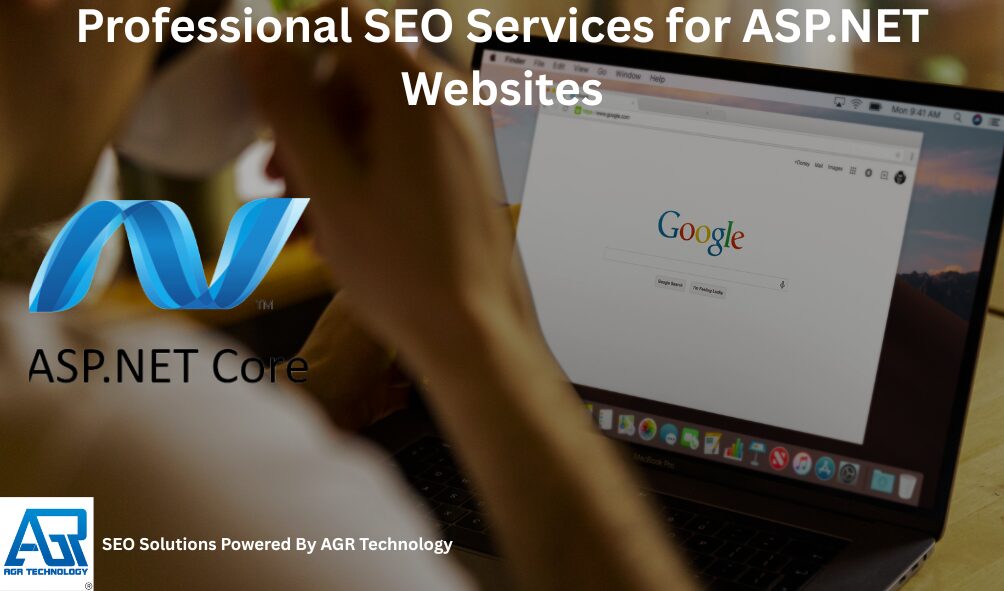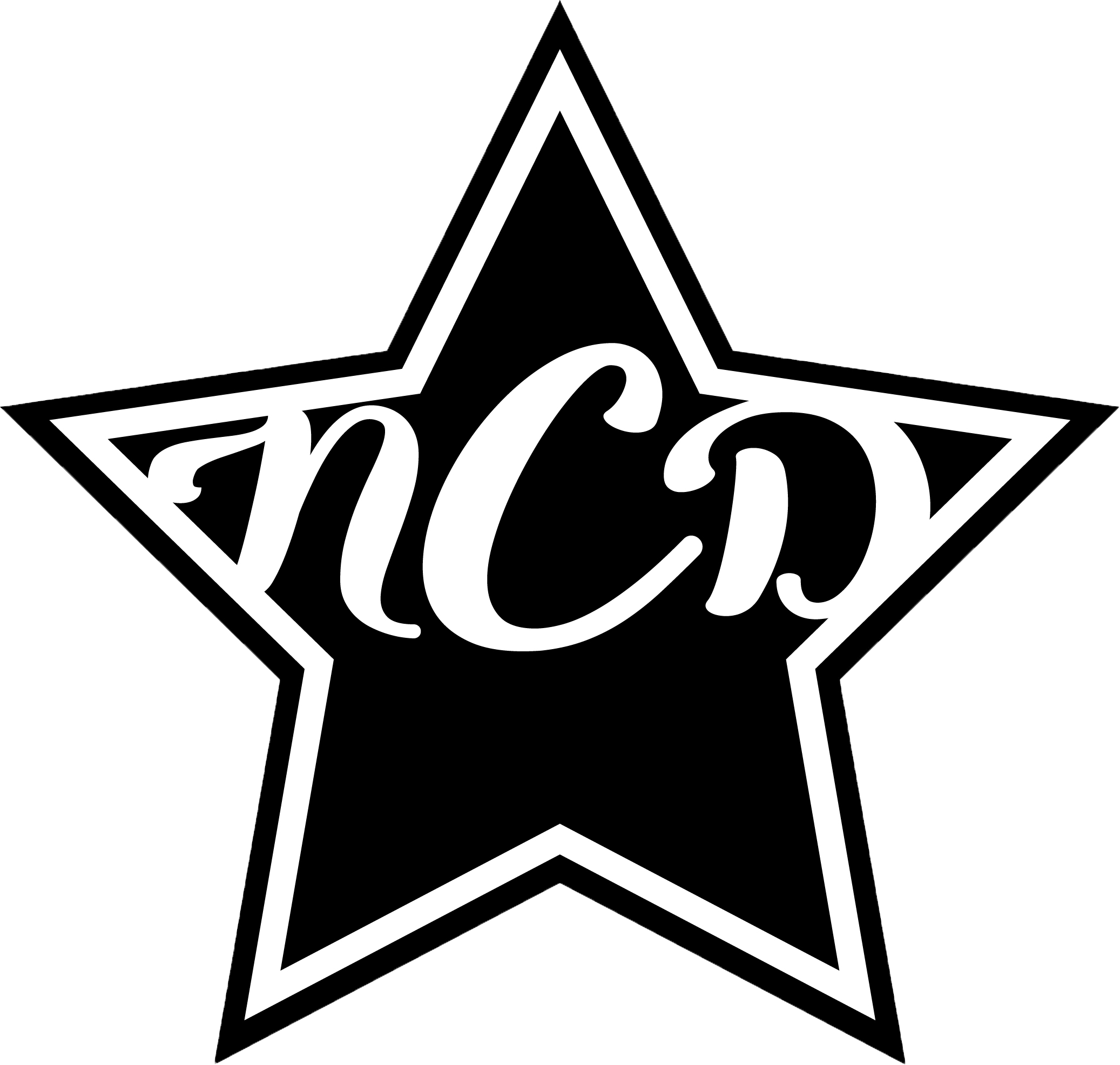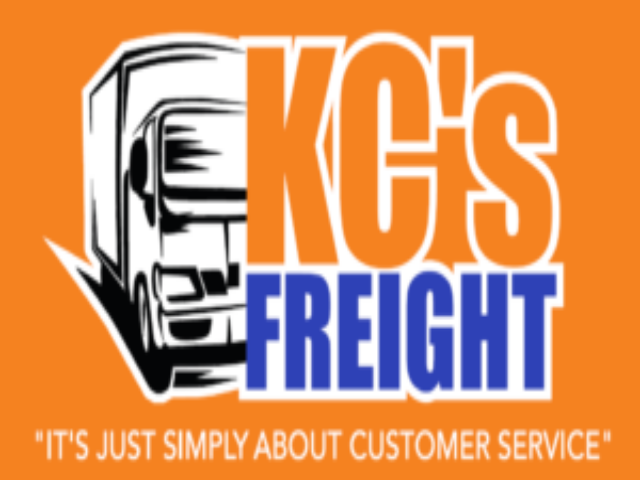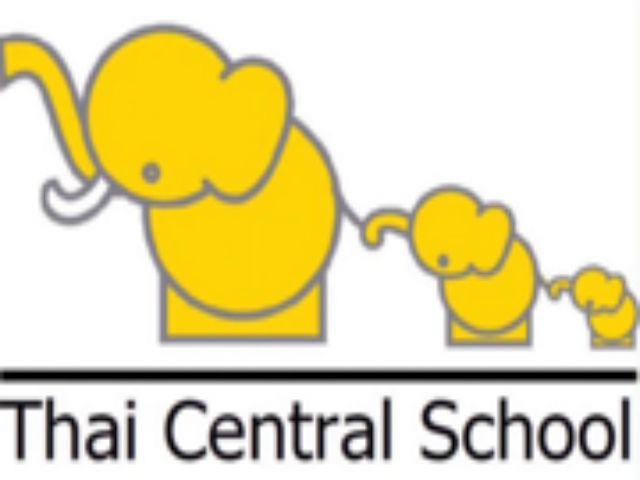53% of all website traffic comes from organic search, making SEO a critical driver of growth for every business online. Yet many ASP.NET developers treat search engine optimization as an afterthought, assuming it’s purely a marketing concern. The reality? Your technical foundation can make or break your search rankings.
40% of users abandon websites that take longer than 3 seconds to load, and poorly optimized code directly impacts both page speed and crawlability. While ASP.NET Core offers powerful built-in features for technical SEO—from server-side rendering to seamless HTTPS enforcement—most developers don’t know how to leverage these capabilities effectively.
That’s where specialized SEO services for ASP.NET websites become game-changers. We’ll explore how the right strategies can transform your .NET application from a technical marvel into a search engine powerhouse that attracts organic traffic and drives conversions.
Book a free consultation call with AGR Technology to see how we can help scale your brand with proven SEO strategies
Reviews from some of our happy customers:
Supporting businesses of all sizes to get ahead with digital solutions
Why work with us?
Understanding ASP.NET and SEO Fundamentals
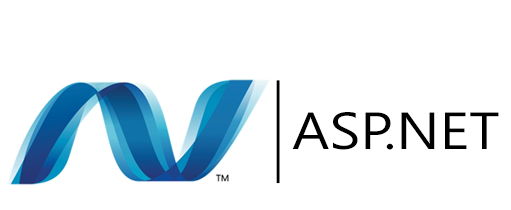
ASP.NET development presents unique optimization challenges that differ significantly from traditional HTML websites. The framework’s architecture impacts how search engines crawl and index content, making specialized SEO knowledge essential for .NET applications.
What Makes ASP.NET Different for SEO
ASP.NET generates dynamic content through server-side processing, creating distinct SEO considerations compared to static websites. The framework produces complex HTML structures with embedded ViewState data, which adds extra code that search engines must parse through to reach your actual content.
Server-side rendering in ASP.NET creates opportunities and obstacles for SEO optimization. While it ensures content exists when crawlers visit your pages, the generated markup often contains unnecessary elements that can dilute your content’s relevance signals.
URL structure in traditional ASP.NET applications typically includes file extensions like .aspx and query parameters, which don’t align with SEO best practices. Search engines prefer clean, descriptive URLs that clearly indicate page content and hierarchy.
Performance characteristics of ASP.NET applications can impact Core Web Vitals measurements. The framework’s postback model and ViewState management can increase page load times and affect user experience metrics that Google considers for rankings.
Content delivery methods in ASP.NET Core and MVC frameworks offer more SEO-friendly approaches than traditional Web Forms. These modern implementations support better URL routing and eliminate many legacy SEO challenges.
Common SEO Challenges with ASP.NET Websites
ViewState bloat represents the most significant technical SEO obstacle for ASP.NET applications. This hidden form field can contain thousands of characters of encoded data that pushes your actual content further down the page source, potentially affecting how search engines prioritize your content.
Session state management creates duplicate content issues when ASP.NET appends session identifiers to URLs. Search engines may index multiple versions of the same page with different session parameters, diluting your ranking potential across variations.
JavaScript dependencies in modern ASP.NET applications can prevent search engines from accessing content that loads after initial page rendering. While Google’s crawler handles JavaScript better than before, critical content should render server-side for optimal indexing.
IIS configuration often lacks SEO-optimized settings by default. Missing compression, improper caching headers, and inefficient redirect handling can negatively impact both user experience and search engine evaluation metrics.
Form authentication systems frequently redirect users through login pages, creating accessibility barriers for search engine crawlers attempting to index protected content areas.
Error handling in ASP.NET applications sometimes returns incorrect HTTP status codes, confusing search engines about page availability and content status. Custom error pages must properly communicate 404 and 500 status codes to maintain search engine trust.
Essential SEO Services for ASP.NET Websites

Professional SEO services for ASP.NET websites address the unique technical challenges that standard SEO approaches can’t handle. Our specialized services focus on framework-specific optimization techniques that maximize search engine visibility while maintaining application performance.
Technical SEO Optimization
Technical SEO for ASP.NET websites requires deep understanding of Microsoft’s development stack and server-side rendering behaviors. We conduct comprehensive technical audits that examine ViewState management, server controls, and postback mechanisms that can interfere with search engine crawling.
Our technical optimization process includes:
- ViewState Minimization: Reducing ViewState bloat that dilutes content-to-code ratios and slows page loading
- Server Control Optimization: Configuring ASP.NET server controls to generate clean, semantic HTML markup
- Meta Tag Implementation: Implementing dynamic meta tags through master pages and content placeholders
- Schema Markup Integration: Adding structured data markup that works seamlessly with ASP.NET’s rendering engine
- XML Sitemap Generation: Creating dynamic sitemaps that automatically update with new content and pages
We optimize IIS configurations to ensure proper HTTP headers, compression settings, and caching directives that search engines expect. Our team addresses duplicate content issues caused by session state management and URL parameters common in ASP.NET applications.
Page Speed and Performance Enhancement
ASP.NET applications face unique performance challenges that directly impact search rankings and user experience. We implement comprehensive performance optimization strategies that address both server-side and client-side bottlenecks.
Core Performance Metrics:
| Metric | Target | Impact |
|---|---|---|
| First Contentful Paint | Under 1.8 seconds | Search ranking factor |
| Largest Contentful Paint | Under 2.5 seconds | Core Web Vital |
| Cumulative Layout Shift | Under 0.1 | User experience metric |
| Time to Interactive | Under 3.9 seconds | Engagement factor |
Our performance enhancement services include:
- Application Pool Optimization: Configuring IIS application pools for optimal memory usage and recycling
- Output Caching: Implementing strategic caching at page and fragment levels to reduce server load
- Bundle and Minification: Optimizing CSS and JavaScript delivery through ASP.NET’s bundling framework
- Image Optimization: Implementing responsive images and next-gen formats compatible with .NET applications
- Database Query Optimization: Improving Entity Framework queries and connection management
We use tools like Google PageSpeed Insights and browser developer tools to monitor loading times and identify performance bottlenecks specific to ASP.NET architecture.
URL Structure and Routing Optimization
Clean, SEO-friendly URLs in ASP.NET applications require specialized routing configuration that differs significantly from static HTML websites. We implement URL rewriting and custom routing patterns that improve both search engine crawling and user experience.
URL Optimization Strategies:
- Custom Route Configuration: Creating semantic URL patterns that replace default .aspx extensions and query parameters
- URL Rewrite Module Implementation: Using IIS URL Rewrite Module to transform dynamic URLs into static-looking paths
- Lowercase URL Enforcement: Implementing consistent lowercase URLs to prevent duplicate content issues
- Canonical URL Setup: Establishing proper canonical tags to consolidate link equity across similar pages
- Friendly URL Generation: Converting database-driven content into readable URL structures
Instead of cryptic URLs like example.com/products.aspx?id=123&cat=widgets, we create clean paths such as example.com/products/ergonomic-office-widgets. This approach improves click-through rates from search results by 45% according to industry studies.
We configure routing in Startup.cs or Program.cs files for ASP.NET Core applications, ensuring URLs remain consistent during application updates. Our routing optimization includes implementing trailing slash consistency and preventing multiple URLs from accessing identical content.
ASP.NET-Specific SEO Implementation Strategies
Successfully optimizing ASP.NET websites requires specialized implementation strategies that address the unique technical characteristics of the Microsoft web development framework. These targeted approaches ensure search engines can effectively crawl, index, and rank your .NET applications.
Server-Side Rendering vs Client-Side Rendering
Server-side rendering (SSR) provides significant SEO advantages for ASP.NET applications by delivering fully-rendered HTML content to search engine crawlers. Unlike client-side rendering, which relies on JavaScript execution, SSR ensures that all page content is immediately accessible to search engines upon initial page load.
ASP.NET Core’s built-in SSR capabilities eliminate common SEO issues associated with JavaScript-heavy applications. When implementing SSR in your ASP.NET application, we configure Razor Pages or MVC views to generate complete HTML markup on the server before sending it to the browser. This approach guarantees that search engines can index your content without waiting for JavaScript execution.
| Rendering Method | SEO Impact | Implementation |
|---|---|---|
| Server-Side Rendering | High crawlability, faster indexing | Razor Pages, MVC Views |
| Client-Side Rendering | Requires JavaScript execution | Angular, React SPA |
| Hybrid Rendering | Balanced performance and SEO | ASP.NET Core Blazor |
Client-side rendering poses challenges when search engine bots encounter JavaScript-dependent content. Google’s crawler can execute JavaScript, but the process adds latency and complexity to indexing. For critical SEO pages like product listings or service descriptions, we recommend implementing server-side rendering to ensure immediate content availability.
ASP.NET Core’s Blazor Server provides an optimal balance between interactive user experiences and SEO-friendly content delivery. Blazor Server maintains server-side processing while delivering dynamic functionality, ensuring that search engines receive fully-rendered content without sacrificing user interaction capabilities.
Meta Tags and Schema Markup Integration
Dynamic meta tag generation in ASP.NET applications requires strategic implementation to ensure each page delivers unique, relevant metadata to search engines. We implement meta tag management through ViewData, ViewBag, or strongly-typed models that populate title tags, meta descriptions, and Open Graph properties based on page content.
// Example meta tag implementation
ViewData["Title"] = product.Name;
ViewData["Description"] = product.Description;
ViewData["Keywords"] = string.Join(", ", product.Tags);
Schema markup integration enhances search result visibility by providing structured data that search engines use to generate rich snippets. For ASP.NET applications, we implement JSON-LD schema markup through partial views or helper methods that generate appropriate schema types based on page content.
Common schema types for ASP.NET websites include:
- Organization: Company information and contact details
- Product: E-commerce item specifications and pricing
- Article: Blog posts and news content
- LocalBusiness: Service provider information
- FAQ: Frequently asked questions sections
The Schema.NET NuGet package simplifies schema markup generation by providing strongly-typed C# classes for all schema.org types. This approach ensures accurate schema implementation while maintaining code readability and reducing implementation errors.
XML Sitemap Generation and Management
Dynamic XML sitemap generation ensures search engines discover all accessible pages within your ASP.NET application. We implement automated sitemap creation that reflects your application’s current content structure, including dynamic routes and database-driven pages.
ASP.NET Core applications benefit from middleware-based sitemap generation that creates XML sitemaps on-demand. This approach ensures your sitemap remains current as content changes without requiring manual updates. We configure sitemap middleware to exclude non-public pages like admin panels or user-specific content.
// Sitemap controller implementation
public class SitemapController : Controller
{
public IActionResult Index()
{
var sitemap = GenerateSitemap();
return Content(sitemap, "application/xml");
}
}
Sitemap optimization includes priority settings that indicate page importance to search engines. We assign higher priority values to critical pages like homepages and primary service descriptions while setting lower priorities for supplementary content like terms of service or privacy policies.
For large ASP.NET applications with thousands of pages, we implement sitemap index files that reference multiple smaller sitemaps. This approach prevents sitemap file size limitations while ensuring comprehensive page coverage for search engine discovery.
Advanced sitemap implementations include last modification dates, change frequencies, and image/video extensions that provide additional context to search engines. We integrate these features through database timestamps and content management system metadata to maintain accuracy without manual intervention.
Advanced SEO Services for ASP.NET Applications
Advanced SEO services for ASP.NET applications require specialized expertise that goes beyond traditional optimization techniques. We implement cutting-edge strategies that address the unique challenges of Microsoft’s web framework while maximizing search engine performance.
Mobile Optimization and Responsive Design
Mobile optimization for ASP.NET applications demands a comprehensive approach that integrates responsive design principles with framework-specific performance considerations. We implement adaptive rendering techniques that ensure optimal display across all device types while maintaining fast loading speeds on mobile networks.
Core Mobile SEO Elements:
- Responsive breakpoint optimization using CSS Grid and Flexbox
- Touch-friendly navigation with appropriate tap target sizing
- Mobile-first indexing compliance through server-side detection
- Accelerated Mobile Pages (AMP) integration for content-heavy sites
- Progressive Web App (PWA) features using ASP.NET Core service workers
We configure viewport meta tags dynamically based on device detection and implement mobile-specific caching strategies that reduce bandwidth consumption. Our mobile optimization process includes testing across multiple devices and screen resolutions to ensure consistent user experience.
Performance Metrics for Mobile:
| Metric | Target Value | ASP.NET Implementation |
|---|---|---|
| First Contentful Paint | < 1.8 seconds | Server-side rendering optimization |
| Largest Contentful Paint | < 2.5 seconds | Image lazy loading and compression |
| Cumulative Layout Shift | < 0.1 | CSS Grid stabilization |
| First Input Delay | < 100ms | JavaScript bundling and minification |
We implement adaptive image serving that automatically delivers optimized formats based on device capabilities and network conditions. This includes WebP format support with fallback options for older browsers and progressive JPEG loading for improved perceived performance.
Content Management and SEO-Friendly Architecture
Content management systems built on ASP.NET require architectural modifications that support both editorial workflows and search engine requirements. We design content delivery mechanisms that generate clean HTML output while preserving the flexibility of dynamic content management.
SEO-Friendly CMS Architecture:
- URL rewriting systems that eliminate session IDs and query parameters
- Content versioning with canonical URL management
- Automated meta tag generation based on content attributes
- Dynamic breadcrumb navigation using MVC routing
- Content categorization with taxonomy-based URL structures
We implement content models that separate presentation from data storage and create template systems that generate semantic HTML markup. Our approach includes automated content optimization features like image alt text suggestions and meta description generation based on content analysis.
Database Design for SEO:
- Normalized content tables with SEO metadata fields
- Full-text search indexing for internal site search
- Content relationship mapping for related article suggestions
- Automated slug generation with duplicate prevention
- Version control for content changes with rollback capabilities
We configure content delivery networks (CDN) integration that works seamlessly with ASP.NET’s output caching mechanisms. This includes edge-side includes (ESI) for dynamic content and geographic content distribution based on user location.
Our content management solutions include editorial tools that provide real-time SEO guidance including keyword density analysis and readability scoring. We implement content scheduling systems that coordinate with XML sitemap updates and search engine notification protocols.
Analytics and Search Console Integration
Analytics integration for ASP.NET applications requires server-side implementation that captures comprehensive user behavior data while maintaining privacy compliance. We configure tracking systems that provide actionable insights for continuous SEO improvement.
Server-Side Analytics Implementation:
- Google Analytics 4 integration with enhanced ecommerce tracking
- Custom event tracking for user interactions and conversions
- Server-side tagging using Google Tag Manager containers
- Heat mapping integration for user behavior analysis
- A/B testing frameworks for content optimization
We implement Google Search Console integration that automates sitemap submission and monitors crawl errors in real-time. Our monitoring systems track keyword rankings and alert administrators to significant changes in search performance.
Advanced Tracking Capabilities:
- Core Web Vitals monitoring with automated alerts
- Click-through rate optimization for search result snippets
- Internal link effectiveness measurement
- Content performance analysis with engagement metrics
- Technical SEO issue detection and reporting
We configure custom dashboards that combine data from multiple sources including server logs and search console metrics. This provides comprehensive visibility into how ASP.NET-specific elements affect search performance.
Our analytics implementation includes privacy-compliant data collection that meets GDPR and CCPA requirements while maintaining data accuracy. We implement cookie consent management systems that don’t compromise tracking effectiveness and configure first-party data collection to reduce dependency on third-party cookies.
Performance Monitoring Integration:
| Tool | Implementation | ASP.NET Integration |
|---|---|---|
| Google PageSpeed Insights | API integration | Automated performance audits |
| Search Console API | Real-time monitoring | Crawl error notifications |
| Core Web Vitals | Field data collection | Server timing integration |
| GTMetrix | Scheduled testing | Performance trend analysis |
We establish conversion tracking systems that measure the effectiveness of SEO improvements on business outcomes. This includes revenue attribution models that connect organic search traffic to actual conversions and customer lifetime value calculations.
Choosing Professional SEO Services for ASP.NET
Professional SEO services for ASP.NET websites require specialized expertise that combines technical development knowledge with advanced search engine optimization strategies. Selecting the right service provider can dramatically impact your website’s organic visibility and long-term search performance.
Key Features to Look For
ASP.NET SEO service providers must demonstrate comprehensive technical expertise across Microsoft’s web development framework. Look for agencies that offer ViewState optimization capabilities, which directly addresses one of ASP.NET’s primary SEO challenges. ViewState bloat affects page loading speeds and can dilute content relevance for search engines.
Technical proficiency indicators include:
- Server control optimization experience
- URL rewriting implementation using IIS URL Rewrite Module
- Dynamic meta tag generation through ViewData manipulation
- Schema markup integration using structured data libraries
- XML sitemap automation for large-scale ASP.NET applications
Framework-specific knowledge encompasses:
- ASP.NET Core routing optimization for clean URL structures
- Web Forms to MVC migration strategies that preserve SEO equity
- Master page optimization for consistent meta data implementation
- Session state management that doesn’t interfere with crawling
- Error handling configuration that maintains proper HTTP status codes
Performance optimization capabilities remain critical for ASP.NET SEO success. Service providers must understand Core Web Vitals metrics and implement solutions that improve First Contentful Paint and Largest Contentful Paint scores. This includes bundling and minification strategies, CDN integration, and database query optimization.
Essential service components include:
- Comprehensive technical SEO audits using ASP.NET-specific diagnostic tools
- Server-side rendering implementation for JavaScript-heavy applications
- Mobile optimization with responsive design best practices
- Search Console integration with proper tracking implementation
- Ongoing monitoring systems that track ViewState impact on performance
Measuring SEO Success and ROI
Effective ASP.NET SEO measurement requires tracking metrics that reflect both technical improvements and business outcomes. Professional services establish baseline measurements before implementing optimizations, then track progress through comprehensive analytics platforms.
Core performance metrics track:
| Metric Category | Key Indicators | Measurement Tools |
|---|---|---|
| Technical Performance | First Contentful Paint, Largest Contentful Paint, Cumulative Layout Shift | Google PageSpeed Insights, Search Console |
| Crawling Efficiency | Pages crawled per day, crawl errors, index coverage | Search Console, server logs |
| Organic Visibility | Keyword rankings, organic traffic growth, click-through rates | Analytics platforms, rank tracking tools |
| Business Impact | Conversion rates, organic revenue, cost per acquisition | E-commerce tracking, attribution modeling |
ASP.NET-specific ROI indicators include:
- ViewState size reduction percentages and corresponding page speed improvements
- URL structure optimization impact on click-through rates from search results
- Server control optimization effects on crawl budget utilization
- Schema markup implementation results in featured snippet appearances
- Mobile optimization improvements in mobile search visibility
Professional SEO services provide detailed reporting that connects technical optimizations to business outcomes. Monthly reports demonstrate how ViewState minimization correlates with improved organic rankings, while quarterly assessments track long-term trends in organic traffic growth and conversion improvements.
Advanced measurement strategies encompass:
- Cohort analysis comparing pre- and post-optimization user behavior patterns
- Attribution modeling that tracks the complete customer journey from organic search
- Competitive analysis showing market share improvements within ASP.NET application verticals
- Technical debt reduction metrics measuring code quality improvements alongside SEO gains
ROI calculation for ASP.NET SEO services factors in both direct revenue increases from organic traffic growth and indirect benefits like improved user experience leading to higher conversion rates. Professional services typically show measurable improvements within 3-6 months, with compound benefits continuing as technical optimizations mature and search engines recognize the enhanced crawlability of optimized ASP.NET applications.
Conclusion
Partnering with specialized SEO services for your ASP.NET website isn’t just an investment—it’s a strategic necessity for competing in today’s digital landscape. We’ve seen how the unique technical challenges of Microsoft’s web framework require expertise that goes far beyond traditional SEO approaches.
The measurable results speak for themselves: improved Core Web Vitals enhanced crawlability and significant increases in organic traffic within months. When you combine ASP.NET’s powerful technical capabilities with professional SEO optimization you create a website that doesn’t just function well—it dominates search rankings.
Your ASP.NET application has untapped potential waiting to be unleashed. With the right SEO partner you’ll transform technical challenges into competitive advantages and watch your organic visibility soar.
Book a free consultation call with AGR Technology to see how we can help scale your brand with proven SEO strategies
Frequently Asked Questions
Why is SEO important for ASP.NET websites?
SEO is crucial for ASP.NET websites because 53% of website traffic comes from organic search. Many ASP.NET developers overlook SEO, treating it as a marketing concern rather than a technical one. However, poor optimization can lead to slow-loading sites, causing 40% of users to abandon pages that take longer than 3 seconds to load.
What are the unique SEO challenges for ASP.NET applications?
ASP.NET applications face unique SEO challenges including complex HTML structures with embedded ViewState data that can dilute content relevance, non-SEO-friendly URL structures, ViewState bloat affecting performance, session state management issues creating duplicate content, and JavaScript dependencies that can hinder search engine crawling and indexing.
What essential SEO services are needed for ASP.NET websites?
Essential ASP.NET SEO services include ViewState minimization, server control optimization, dynamic meta tag implementation, schema markup integration, XML sitemap generation, performance enhancement focusing on Core Web Vitals, and URL structure optimization to create clean, SEO-friendly routing patterns.
Should I use server-side rendering (SSR) or client-side rendering for SEO?
Server-side rendering (SSR) is recommended for better SEO performance in ASP.NET applications. SSR delivers fully-rendered HTML content directly to search engines, ensuring better crawlability and faster indexing compared to client-side rendering, which can create challenges for search engine bots.
How do I optimize mobile SEO for ASP.NET websites?
Mobile optimization for ASP.NET sites requires responsive breakpoint optimization, touch-friendly navigation implementation, Accelerated Mobile Pages (AMP) integration, and monitoring performance metrics like First Contentful Paint and Largest Contentful Paint to ensure fast loading times on mobile devices.
What should I look for in professional ASP.NET SEO services?
Look for providers with specialized ASP.NET expertise offering ViewState optimization, server control optimization, dynamic meta tag generation, performance enhancement capabilities, ongoing monitoring systems, and the ability to measure ROI through technical performance metrics, organic visibility tracking, and business impact analysis.
How long does it take to see SEO results for ASP.NET websites?
Professional ASP.NET SEO services typically demonstrate measurable improvements in organic traffic and conversion rates within 3-6 months. Success is measured through technical performance metrics, organic visibility improvements, and business impact indicators that show the correlation between technical optimizations and business outcomes.
How do I track SEO performance for my ASP.NET application?
Implement comprehensive analytics through server-side Google Analytics integration, Search Console setup for ASP.NET applications, Core Web Vitals monitoring, conversion tracking systems, and establish baseline measurements to track progress in organic traffic, search rankings, and user engagement metrics.
Related content:
SEO Services For the Wix Platform
Source(s) cited:
[Online]. Available at: https://searchengineland.com/organic-search-responsible-for-53-of-all-site-traffic-paid-15-study-322298 (Accessed: 30 May 2025).
Brenner, Michael. “Organic Search Traffic: One of the Best Reasons for Content Marketing” 26 Apr. 2022, contentmarketinginstitute.com/content-distribution-promotion/organic-search-traffic-one-of-the-best-reasons-for-content-marketing. Accessed 30 May 2025.

Alessio Rigoli is the founder of AGR Technology and got his start working in the IT space originally in Education and then in the private sector helping businesses in various industries. Alessio maintains the blog and is interested in a number of different topics emerging and current such as Digital marketing, Software development, Cryptocurrency/Blockchain, Cyber security, Linux and more.
Alessio Rigoli, AGR Technology
![logo-new-23[1] logo-new-23[1]](https://agrtech.com.au/wp-content/uploads/elementor/thumbs/logo-new-231-qad2sqbr9f0wlvza81xod18hkirbk9apc0elfhpco4.png)
